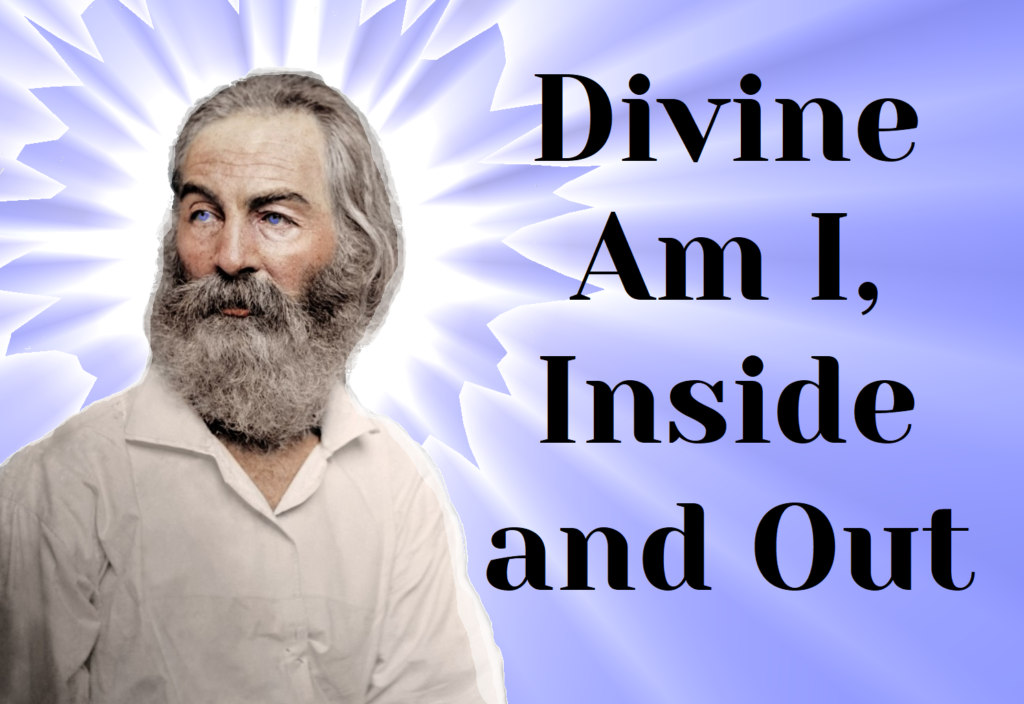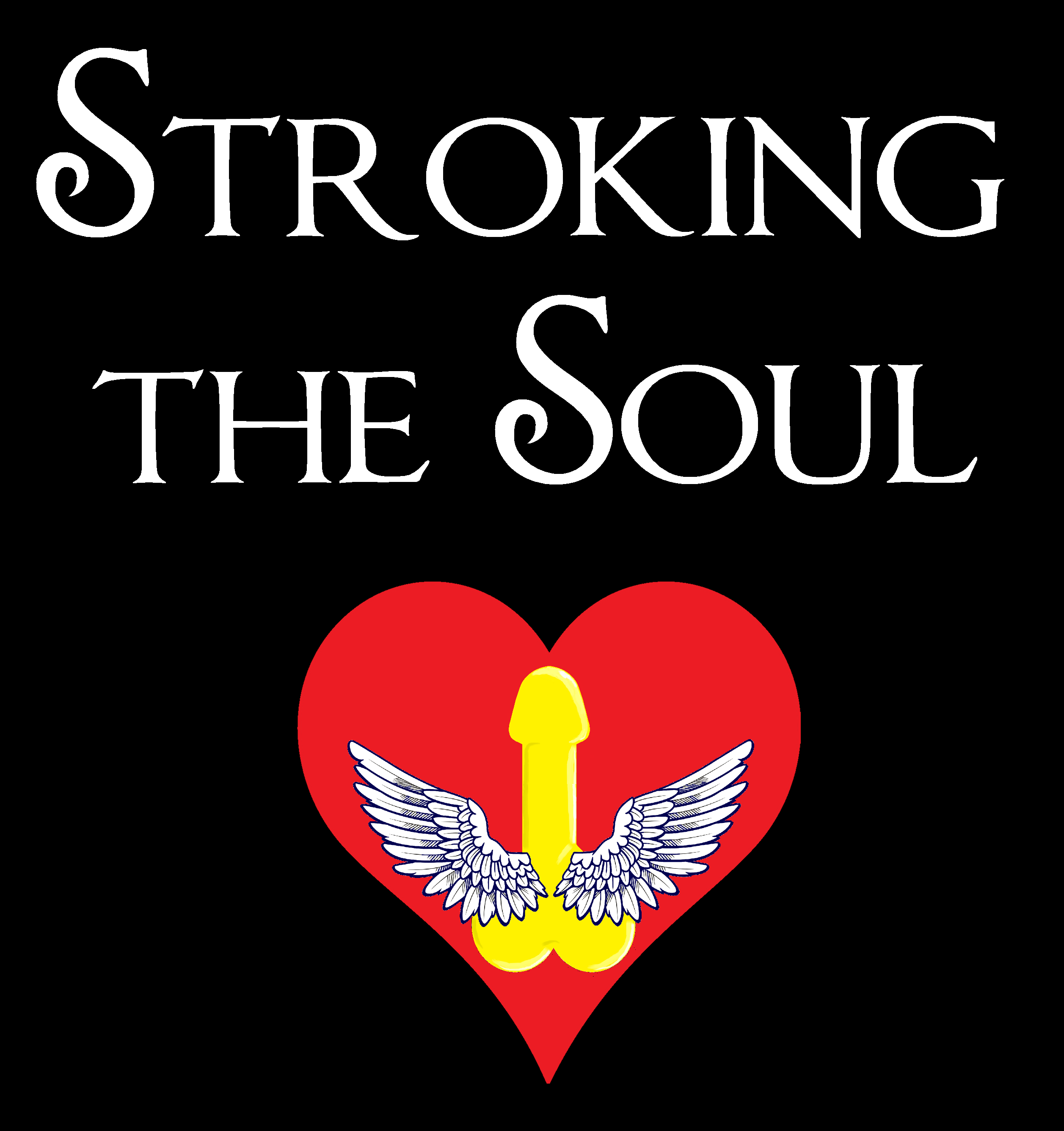
Divine am I, Inside and Out
“Divine am I inside and out, and I make holy whatever I touch or am touch’d from,
The scent of these arm-pits aroma finer than prayer,
This head more than churches, bibles, and all the creeds.— Walt Whitman, “Song of Myself”
If I worship one thing more than another it shall be the spread of my own body, or any part of it.”
“Song of Myself” has long served as a sort of scripture for me, especially this particular section. I have quoted it many times all over social media.
Whenever the demons of doubt cast their shadows on me, Whitman’s lyrical sermons have frequently offered me comfort and inspiration.
Whitman viewed both the natural world and the human world with a sense of wonder. He recognized the divine in every individual human body as well as every individual blade of grass.
He reclaimed his own divinity amongst the trees, the sunshine and fresh breeze, the brooks and streams, and—of course—the calamus reeds.
He also expressed how unfortunate it is that mankind has become so disconnected from nature. Whitman waxed on the profundity of nature with words as flowery as his surroundings.
He understood that the human body itself is a part of nature, no matter how much humanity tries to distance itself from it.
People have so much shame and trauma attached to their bodies. Under the guise of “decency” and “morality,” the message we’re taught by society is that our naked bodies and physical pleasures are “sinful,” and our very nature should be suppressed.
Whitman realized that our bodies are not “dirty” or “evil” and should be celebrated instead. He understood that every part of us is sacred and important.
“Welcome is every organ and attribute of me, and of any man hearty and clean,
Not an inch nor a particle of an inch is vile, and none shall be less familiar than the rest.”
“I believe in the flesh and the appetites,
Seeing, hearing, feeling, are miracles, and each part and tag of me is a miracle.”
I have no doubt that, in his own way, Whitman was a very sensual man. It is impossible to read his poetry and not get the impression that he not only experienced the world through his senses, but it was also through his senses that divine wisdom was revealed to him.
The correlation between his bare flesh and the natural world is very clear. His words paint the picture of an ecstatic shaman, eager to rejoice in the rhythm and flow of nature’s tune, and become rejuvenated by the esoteric energy of the earth, air, leaves, water, and sun.
“I will go to the bank by the wood and become undisguised and naked,
I am mad for it to be in contact with me.
The smoke of my own breath,
Echoes, ripples, buzz’d whispers, love-root, silk-thread, crotch and vine,
My respiration and inspiration, the beating of my heart, the passing of blood and air through my lungs,
The sniff of green leaves and dry leaves, and of the shore and dark-color’d sea-rocks, and of hay in the barn,
The sound of the belch’d words of my voice loos’d to the eddies of the wind,
A few light kisses, a few embraces, a reaching around of arms,
The play of shine and shade on the trees as the supple boughs wag,
The delight alone or in the rush of the streets, or along the fields and hill-sides,
The feeling of health, the full-noon trill, the song of me rising from bed and meeting the sun.”
But sections 28 and 29 paint a different sort of picture. Here we see Whitman wrestling with his desires. Many have speculated on the meaning of his words, and it seems that the most common interpretation is that he is writing about masturbation.
Whitman describes his erection and ejaculation with the same sensual grandiloquence. Despite this, he seems tortured by the whole process, also using terms of deception such as “treacherous tip,” “prurient provokers,” “villain touch,” “deluding my confusion,” and “traitors,” also noting that “I and nobody else am the greatest traitor.”
During the 19th century, masturbation was called “self-abuse,” and was universally condemned by the Christian Church and denounced by pseudoscientific quacks in the medical industry… often these were the same people. Therefore, it is no surprise that Whitman would have conflicting feelings about this part of sensuality.
“Is this then a touch? quivering me to a new identity,
Flames and ether making a rush for my veins,
Treacherous tip of me reaching and crowding to help them,
My flesh and blood playing out lightning to strike what is hardly different from myself,
On all sides prurient provokers stiffening my limbs,
Straining the udder of my heart for its withheld drip,
Behaving licentious toward me, taking no denial,
Depriving me of my best as for a purpose,
Unbuttoning my clothes, holding me by the bare waist,
Deluding my confusion with the calm of the sunlight and pasture-fields,
Immodestly sliding the fellow-senses away,
They bribed to swap off with touch and go and graze at the edges of me,
No consideration, no regard for my draining strength or my anger,
Fetching the rest of the herd around to enjoy them a while,
Then all uniting to stand on a headland and worry me.The sentries desert every other part of me,
They have left me helpless to a red marauder,
They all come to the headland to witness and assist against me.I am given up by traitors,
I talk wildly, I have lost my wits, I and nobody else am the greatest traitor,
I went myself first to the headland, my own hands carried me there.You villain touch! what are you doing? my breath is tight in its throat,
Unclench your floodgates, you are too much for me.Blind loving wrestling touch, sheath’d hooded sharp-tooth’d touch!
Did it make you ache so, leaving me?Parting track’d by arriving, perpetual payment of perpetual loan,
Rich showering rain, and recompense richer afterward.Sprouts take and accumulate, stand by the curb prolific and vital,
Landscapes projected masculine, full-sized and golden.“
It’s a brilliant piece of writing—a constant stream of contrasting emotions, jerking back and forth between pleasure and torment.
His words express a tone of urgency, as if this erotic urge carries a great burden of shame that he desperately needs to release.
These stanzas seem to contradict the themes of celebrating the self and the senses that are prevalent throughout most of the poem.
Whitman, through his divine wisdom, was not only completely aware of his contradictions, but he also acknowledged and embraced them.
“Do I contradict myself?
Very well then I contradict myself,
(I am large, I contain multitudes.)“
Happy 204th birthday, Mr. Whitman!
(May 31, 1819 – March 26, 1892)
